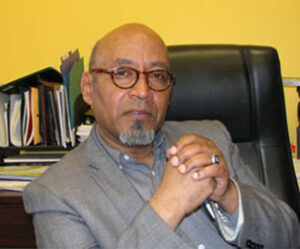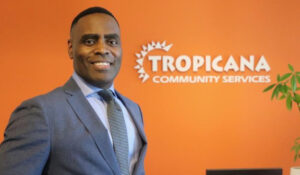By Lincoln DePradine

Canadians of African descent are being encouraged to engage in advocacy to ensure fair and equal treatment in navigating healthcare and other sectors of society.
“These are systems; they are complicated, they are complex and they are fraught with cracks through which people fall,’’ said lawyer Raymund Guiste, executive director of Tropicana Community Services (TCS).
“The disproportionate impact that accrues to Black people when we navigate these systems must be mitigated. It is so important that we are committed to that work of advocacy. It’s a sacred duty.’’
Guiste made the comments Saturday, while participating in a “back-to-school health preparation’’ event that included workshops covering topics such as childhood diseases; immunization; fostering mental health and wellness practices; improving diet and exercise; and building anti-Black racism awareness and knowledge.
The Saturday afternoon session was hosted in Scarborough at the Centre of Excellence for Black Student Achievement, which was one of the co-sponsors. Other sponsoring organizations were the Black Physicians’ Association of Ontario; TAIBU Community Health Centre; City of Toronto; TCS; and the Black Scientists’ Task Force (BSTF) on Vaccine Equity.
BSTF was established last year by the City of Toronto with a mandate to “build community awareness of the disparities in COVID-19 positivity, hospitalization, and mortality rates, as well as

the need for comprehensive prevention efforts, including knowledge of the various vaccines’’.
Task Force member Dr Na-Koshie Lamptey, Toronto’s deputy medical officer of health, said because of the work of BSTF and other community partners, COVID-19 infection rates among Black Torontonians had declined by the end of last year, with community members having a “lower chance of becoming infected from COVID or from ending up in hospital’’.
“As a public health physician, it’s been a great privilege to witness the collective coming together of the Black community and other racialized groups in this city’’ to address a problem and to demonstrate “how excellence in health outcomes can be achieved’’, Lamptey said.
She advised people “to follow all the institutional practices we have in our Black community that are going help us continue to thrive. We have rallied to make sure that the COVID impact is less than it was a year ago. But, COVID is still here; we need to keep rallying to make sure that we can see each other safely, healthily and share our joy’’.
With the winter season approaching, “please get up-to-date with your immunization, not just COVID immunization but influenza and all the others that are going to protect you’’, Lamptey urged. “Think about wearing your masks in indoor spaces when you’re in close proximity. Get your sleep, embrace your loved ones, build up the mental health of the people you love and the people around’’.
In session after session on Saturday, presenters underscored the importance advocacy; of “stepping in when others don’t have a voice’’, and networking with others.
“The need for advocacy is real. We need to know how to advocate for ourselves and for others,’’ said Guiste, who shared personal examples of challenges he has had to confront in dealing

with the healthcare system on behalf of his daughter and late mother.
Liben Gebremikael, executive director of the TAIBU Community Health Centre that has just celebrated the 14th anniversary of its founding, said there is “excellence in our community. We just need to bring it together and then move forward’’.
He said while Canadian politicians speak of “recovery’’ in the aftermath of the COVID-19 pandemic, the word has a special meaning – in health and social concerns – for members of the Black community.
“We cannot recover to where we were before. We have to recover to a better place,’’ Gebremikael said.
LJI Reporter


